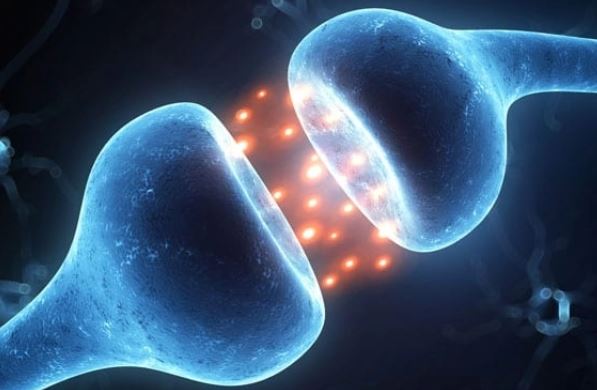Keto diet slashes depression in college students by 70% in just 10 weeks
09/10/2025 / By Cassie B.

- A groundbreaking Ohio State study reveals the ketogenic diet reduced depression symptoms by nearly 70% in 10 weeks, outperforming drugs and therapy.
- Participants on the keto diet experienced dramatic improvements in mood, cognitive function, and well-being while losing an average of 11 pounds.
- Ketones provide a stable energy source for the brain, reducing inflammation and oxidative stress linked to depression.
- Researchers emphasize nutrition as a scalable, low-cost solution for America’s growing mental health crisis.
- The study challenges Big Pharma’s dominance, proving dietary interventions can surpass conventional treatments for depression.
For decades, Big Pharma has pushed antidepressants as the only solution for depression, despite their questionable efficacy and dangerous side effects. Now, a groundbreaking pilot study from Ohio State University reveals what natural health advocates have long suspected: a well-formulated ketogenic diet can reduce depression symptoms by nearly 70%—outperforming drugs and therapy by 20%—in just 10 weeks.
The findings, published in Translational Psychiatry, followed 16 college students with major depressive disorder (MDD) who were already receiving medication, counseling, or both. After adopting a low-carb, high-fat keto diet, participants experienced dramatic improvements in mood, cognitive function, and overall well-being, all while losing an average of 11 pounds.
A natural alternative to Big Pharma’s failed solutions
The study’s lead author, Dr. Jeff Volek, a professor of human sciences at Ohio State, emphasized the urgency of exploring dietary interventions. “So many people are suffering right now, so it’s rewarding to potentially bring forward a solution,” he said. “There is more science yet to do, but because there is evidence of a benefit, expanding accessibility to a well-formulated ketogenic diet as an augmentation to treatment for depression is something to think about.”
Current treatments—antidepressants and counseling—typically achieve only a 50% reduction in symptoms over the same period. Yet in this trial, self-reported depression scores plummeted by 69%, while clinician-rated assessments showed a 71% improvement. Even more striking, participants’ global well-being tripled, and cognitive performance improved in memory, processing speed, and executive function.
How ketosis rewires the brain for mental health
The ketogenic diet works by shifting the body’s primary fuel source from glucose to ketones, which are produced when fat is metabolized. Unlike sugar, which triggers inflammation and blood sugar crashes, ketones provide a stable, clean-burning energy source that supports brain function.
“The idea is that the ketogenic diet is working through a variety of potentially different mechanisms—there’s a whole range of physiological metabolic adaptations to the diet that could overlap with some of the pathophysiology of depression,” Volek explained.
Previous research has shown that ketones act as epigenetic signaling molecules, reducing oxidative stress, regulating gene expression, and even promoting longevity. This aligns with the study’s findings: no participant’s symptoms worsened, and many experienced rapid improvements within just two weeks.
A scalable solution for America’s mental health crisis
With 40% of college students reporting depression symptoms and many unable to access consistent treatment, nutrition offers a low-cost, scalable intervention. “There is a need for finding ways of helping students on a large scale. And nutrition is one way we can do that,” said Dr. Ryan Patel, a psychiatrist involved in the study.
The trial’s success builds on earlier research, including a 2024 Stanford Medicine study that found keto improved symptoms in patients with schizophrenia and bipolar disorder. Participants reported better energy, sleep, mood, and quality of life, proving that metabolic health is deeply connected to mental well-being.
Food as medicine
The implications of this study are revolutionary. For years, the psychiatric industry has dismissed dietary changes as “alternative medicine,” while pushing profitable (but often ineffective) drugs with dangerous side effects. Yet here we have hard evidence that a natural, drug-free intervention can outperform conventional treatments.
Of course, the study had limitations—most notably, no control group for direct comparison. But the results are so compelling that researchers are already planning larger trials.
The mental health industry has long ignored the gut-brain connection, instead funneling patients into lifetime dependency on SSRIs and therapy. Yet this study proves what functional medicine practitioners have known for years: what you eat directly impacts your mood, cognition, and resilience.
As more research emerges, the case for metabolic psychiatry—treating mental illness through diet and metabolism—grows stronger. If a simple dietary shift can outperform antidepressants, imagine what else we’ve been misled about.
Sources for this article include:
Submit a correction >>
Tagged Under:
brain function, depression, gut-brain axis, Keto, keto diet, mental, mental health, mind body science, natural cures, natural health, nutrients, prevention, remedies
This article may contain statements that reflect the opinion of the author





















